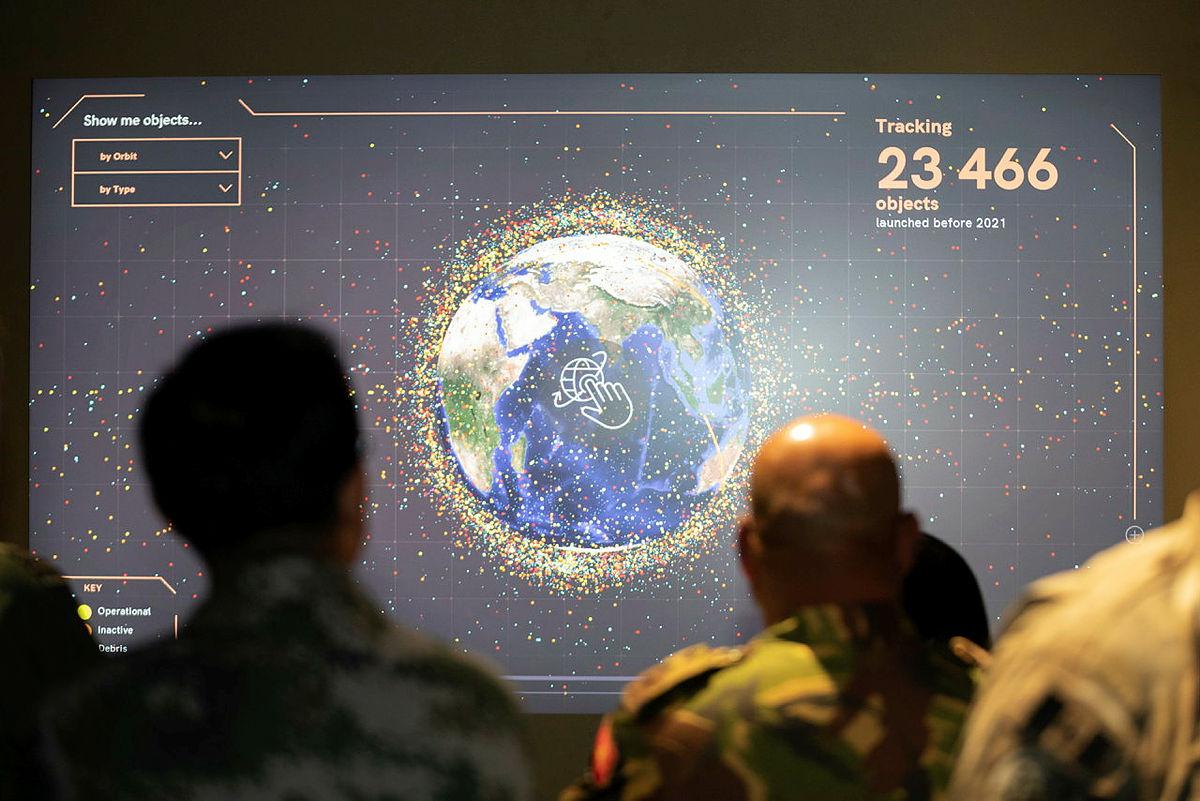
In a development that could significantly increase Australia’s ability to carry out military operations in space, the government has launched a search for options for ground-based electronic warfare capabilities. Defence Minister Peter Dutton says the capability will seek to ‘detect and deter attempts to interfere with, or attack, our use of the space domain’.
This comes just a few months after the announcement that a ‘space command’ will be established within the Australian Defence Force. A space domain review is due to be completed by the end of 2021.
The decision to pursue a space electronic warfare capability study is timely. The government’s 2020 force structure plan identified ‘space control’ as a key requirement for the ADF’s ability to use space as an operational environment. It highlighted the requirement for effective space domain awareness, and recognised that:
Defence will need capabilities that directly contribute to war fighting outcomes in the space domain using terrestrial and/or space-based systems … [including] … the development of options to enhance ADF space control through capabilities to counter emerging space threats to Australia’s free use of the space domain and that assure our continued access to space-based intelligence, surveillance and reconnaissance.
The electronic warfare study begins the process of adding capability to that policy statement. Such a capability wouldn’t be a traditional anti-satellite weapon, as tested by China, Russia and, more recently, India, which physically destroys its target, creating a cloud of space debris. Instead, it is a ‘soft kill’ system, which would enable the ADF to generate scalable and reversible effects against a target without physically destroying it.
The US deploys a ‘counter communications system’ designed to jam and deny enemy satellite communications. It’s likely that the new study will suggest a similar capability for the ADF. Acquisition of the US system for the ADF could provide one component of an Australian capability.
A space electronic warfare system would rely heavily on a clear ability to monitor activities by hostile powers in orbit. Australia hosts a US C-band radar system and space surveillance telescope at Exmouth in Western Australia, and under another study is looking at how it can use ground- or space-based commercial systems.
For a space electronic warfare capability on the ground to be effective, it must have timely awareness of emerging threats in orbit.
These studies will allow the defence organisation to take its first steps towards ‘space control’ while adhering to international norms for responsible behaviour in space.
The first focus of this new Australian capability is to ensure we have access to sovereign space-based communications and intelligence, surveillance and reconnaissance. It’s also about deterring emerging threats posed by the counterspace capabilities of China and Russia.
Being able to respond when a threat emerges is critical. The ability to identify and track a potential adversary’s satellite and determine if it poses a threat to our satellites is essentially meaningless if we can’t then stop it from carrying out an attack.
The space electronic warfare system is but a first step to be able to do more than simply monitor an attack in progress.
So, what’s the next step? Co-orbital anti-satellite weapons deployed by an adversary are one challenge. We also face the prospect that an adversary could directly, or via non-state proxies, launch a cyberattack against our satellites, or the ground station controlling them. China has already demonstrated ground-based laser-dazzling of satellites and has dedicated facilities in the desert near the city of Yumen in the Gansu region—close to newly detected missile silos.
More innovative counterspace threats are on the horizon. Russia has demonstrated a ‘matryoshka’ satellite, which may look like a regular civilian satellite but can contain smaller satellites that could carry out rendezvous and proximity operations against other craft. And the ‘grey zone in orbit’ opens up all sorts of challenges, as a recent report by the US-based Center for Strategic and International Studies, Defense against the dark arts in space, suggested.
The studies now underway need to consider how Australia should respond if counterspace capabilities proliferate, and if legal constraints on weaponising space, most of which were written in the 1960s, fail to keep pace with rapidly evolving threats.
Defence must look beyond a purely ground-based system, be it for space domain awareness or counterspace. Having a presence in orbit for space surveillance, and for defensive soft-kill space capabilities, needs to be discussed in terms of providing an ability to respond to threats and to protect our other space capabilities. The potential for developing such a capability alongside the US, and perhaps other allies, such as the UK or maybe Japan, needs to be considered.
A key requirement still missing is for Australia to be able to launch satellites on our own launch vehicles from our own launch sites. Defence needs to explore how commercial facilities—including those likely to be provided by companies such as Gilmour Space Technologies from sites in South Australia, the Northern Territory and potentially Queensland—can contribute to building space resilience through rapid reconstitution of satellite constellations.
How Australia uses space, both for military purposes and for broader national requirements, needs a coherent strategy. The Australian Space Agency released a civil space strategy in 2019, but Defence hasn’t contributed something similar. It’s time for a national space strategy to guide how Australia protects its security interests in a contested high fronter.